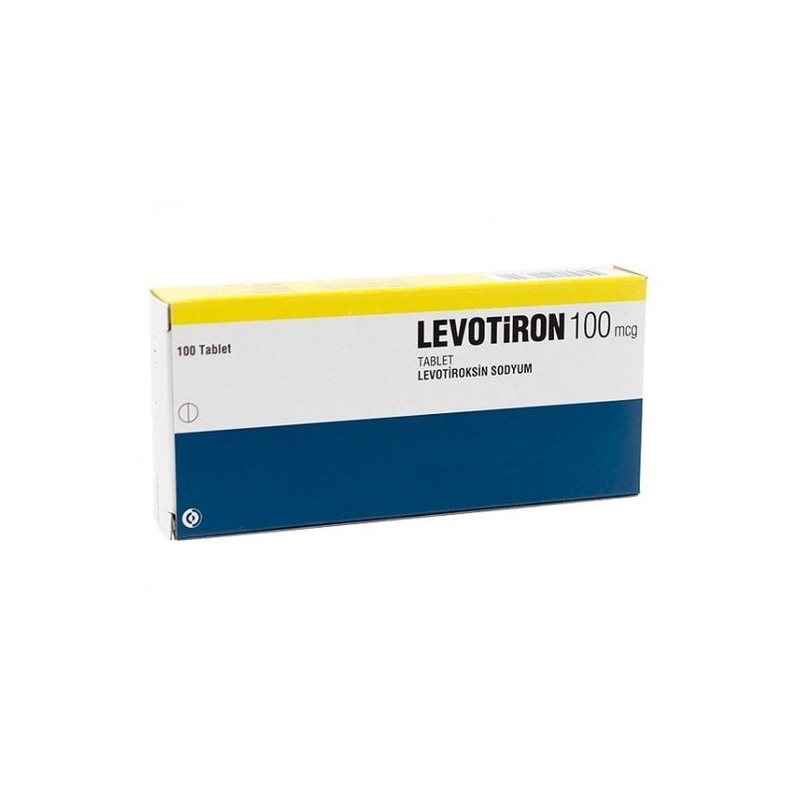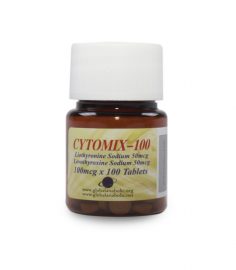Description
Levothyroxine is a synthetic thyroid hormone prescribed to treat low thyroid function, also known as hypothyroidism. Part of your endocrine system, your thyroid gland is located at the base of your throat and creates the hormones that control how quickly you use both oxygen and energy — the basis of your metabolism. A sluggish thyroid doesn’t produce enough hormones; as a result your metabolism slows down which can easily lead to weight gain. Once you begin to take levothyroxine, your metabolism will normalize and weight loss should be easier.
- Metabolism and Weight Loss
Weight loss with hypothyroidism can be challenging because a slower metabolism results in fewer calories being used. Taking levothyroxine should boost your metabolism, helping you to burn more calories, even at rest. You can also keep your metabolism high by burning more calories through exercise — especially strength training exercises, which build muscle mass. The American College of Sports Medicine notes that increasing your ratio of muscle to fat will enable you to burn more calories, even at rest. Consume at least 18 percent to 20 percent of your calories from lean protein.
- Dietary Guidelines — Carbohydrates
There is no single diet for weight-loss with hypothyroidism, the best diet for you is the one you can actually stay on and should include eating a variety of healthy foods, calorie reduction, portion control and exercise. The Thyroid Information Network says that when your metabolism is slowed down, so is your body’s ability to process sugar, leading to higher glucose and insulin levels. Simple carbohydrates such as sugar and starches should be limited. You don’t need to follow a low-carb diet unless that lifestyle works for you but choosing complex carbs or using the glycemic index to help choose carbs that have a minimal effect on glucose will help you lose weight on levothyroxine.
- Calories, Weight Loss and Metabolism
How much food you eat is as important as the types of food you eat. The more you restrict calories, the faster you’ll lose weight but only if you still consume enough calories to support basic metabolic function. The National Institutes of Health says that you need between 1,200 and 15,00 calories daily to ensure proper metabolic function. When you don’t eat enough calories, your metabolism slows down, going into “starvation mode” and conserving energy for survival. With hypothyroidism your metabolism is already slow slowing it further by not eating enough, or by waiting too long between eating, will only hinder weight loss. Try to eat at least every four hours to keep your metabolism high.
- Levothyroxine Interactions and Iodine
Iodine is an essential element for making thyroid hormone, but iodine deficiency rarely causes hypothyroidism. If you’re taking levothyroxine, you’re thyroid isn’t manufacturing thyroid hormone — levothyroxine is providing an already fully formed synthetic hormone replacement. But it is important that nothing in your diet interferes with the absorption of your medication. Levothyroxine should be taken by itself on an empty stomach. Vitamins that contain calcium and iron can block the absorption of levothyroxine, as can antacids that contain aluminum hydroxide. Don’t rely on diet pills to lose weight. Orlistat, the active ingredient in Alli, can also stop your body from assimilating thyroid hormone replacement. Anything that can interfere with your levothyroxine medication should be taken two to four hours after you take levothyroxine.



